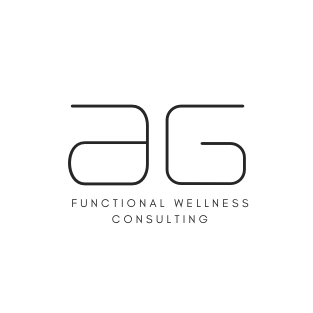I broke out in hives when I pulled up to the McDonald's drive-thru to purchase my chicken nuggets, Big Mac, french fries and apple pie. I do have to admit it smelled pretty damn good but the good stops right about there. I am not going to go get on a soapbox about how bad fast food is, I am sure you have heard enough of that...but what I am going to do is invite you all on a little journey with me. I have heard stories about how people found leftover McDonalds food in a bag after "x amount of time" and it didn't have mold or had not even begun to decompose. Ewwwww. How in the world can food survive mold, bugs and decomposition? The answer is out there, but again, we are not talking about that. We are just doing an experiment together. I bought the food, it will live out in the open at my house and we are going to watch it. Each week I will take a picture and post it on Instagram and we can see if it really is true that the food does NOT get mold or decompose, this should be fun. To have a front row seat on this fascinating journey, be sure to follow me on Instagram. Ready...set...watch!
All Eggs Are NOT Created Equal
I have a confession. I pay $6+ dollars for a dozen eggs. Ridiculous, I know. But buying organic, "animal welfare approved" eggs is one of those things that is worth it to me. I would rather spend the money ($.50+ per egg to be exact), and enjoy an egg that I know has the higher nutritional profile and also know that the hen that produced the egg lives a humane life. Versus the other option...a conventional egg with lower nutritional quality and that comes from a hen that lived a not-so-good-life. When it comes to eggs, you really do get what you pay for.
Mother Earth News conducted a study where they compared eggs from conventional hens to eggs from hens raised on pastures. Just the analysis below is enough for me to justify forking over the extra cash. The eggs from pasture raised hens had:
- 1/3 less cholesterol
- 1/4 less saturated fat (the bad fat!)
- 2/3 more vitamin A
- 2 times more omega-3 fatty acids
- 3 times more vitamin E
- 7 times more beta carotene
If you visit the egg aisle of your local grocery store, it can be overwhelming. You have so many different choices with so many different labels in your face...organic, free range, cage free, humanely raised, omega-3 enhanced and on and on. What the heck does all this mean and better yet, what is the best egg to buy? Several of the "labels" you will find on eggs are bonafide marketing gimmicks...industry purely taking advantage of us. I don't know about you, but this is the type of thing that gets me FIRED up! Fortunately, TakePart.com put together this nifty info-graphic to help us weed through the crap out there. By the way, I wasn't sure what "forced molting" was so I googled it. 😳
To sum it up, try to buy from a local farmer and KNOW YOUR FARMER. Ask questions. I recently sent an email to White Oak Pastures inquiring about their hens and eggs. I have to say, I was pleasantly surprised when I received a very thorough, personal response about their practices. Click here if you would like to read the full response but long story short, they are legit and my FIRST choice of eggs. Next up would be other local farmers you can find at your local farmers market. And if you can't find eggs there, Vital Farms has outstanding practices and you can find them nationwide by clicking here. Organic, Animal Welfare Approved is the goal.
In the end, I choose the egg from a chicken raised on sunshine, bugs and grass. And as I enjoy my eggs, I kick back and think about life on the farm when I was growing up...I will save that story for another time. 😉



